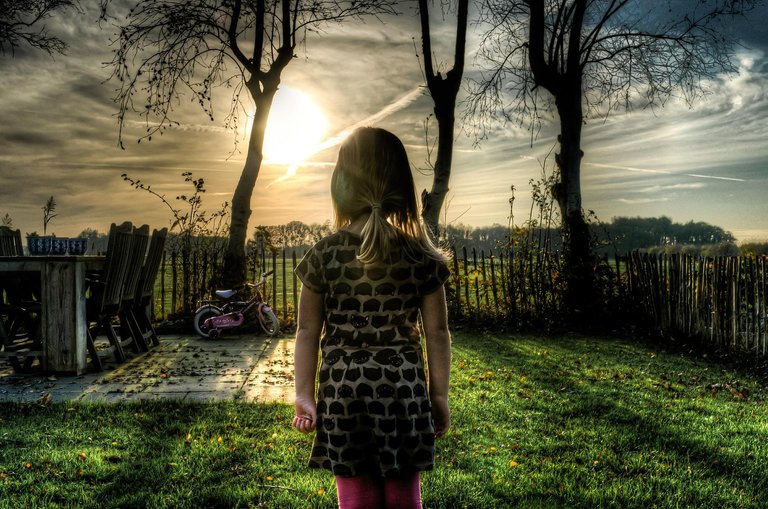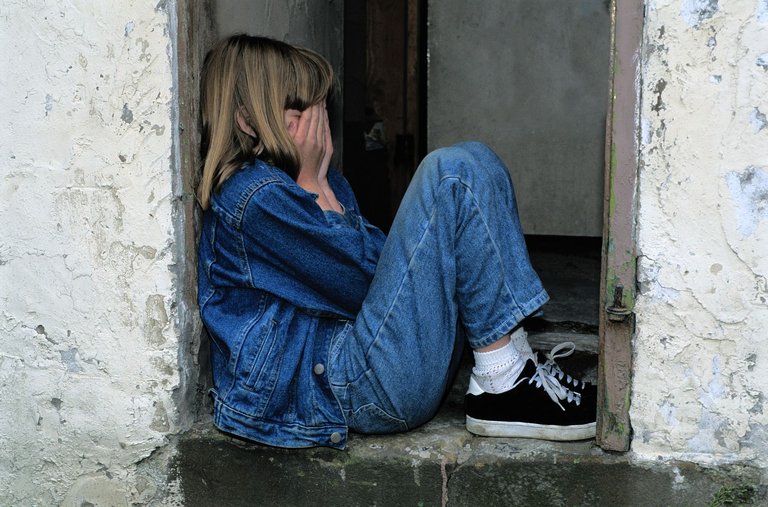
The classes weren't exactly a lot of fun, but I really enjoyed it. I was able to learn about how certain deficiencies, whether social, biological or affection, are able to shape a person's entire thinking and behavior in their adult life.

There was one thing in particular that interested me about the guide the doctor offered us to study (I don't know if the information is up to date):
Crisis trust vs. mistrust.
Birth to 12/18 months. Child develops a sense of whether or not he/she can trust the world. The key to personality development lies in early experiences. Children need to develop a balance between trust (which allows them to form intimate relationships) and distrust (which enables them to protect themselves). If trust predominates, children develop the virtue HOPE (the confidence that they can meet their needs and fulfill their desires). If distrust predominates, children will feel that the world is an unfriendly and unpredictable place and will find it difficult to establish interpersonal relationships. The crucial element in the development of trust is an attentive, sensitive and consistent caregiver. Erikson considered feeding time to be the stage for establishing the balance between trust and distrust.
This touched me. My brother and I suffered domestic abuse from several babysitters when we were toddlers. In one of the cases, they discovered the assaults on my first birthday because of talk from the babysitter at the time. Unfortunately, my parents would hire girls they didn't know (I imagine there was more trust in those days) and, when they found out about the abuse, they would fire her and find another one. It got to a point where my father decided to quit his job to take care of us.
Although neither of us remember anything, I was always aware that, in some way, it had affected us. If I was physically and verbally abused at the stage where I was building my sense of security and confidence in the world, it's no surprise that throughout my adolescence I avoided intimately relating to others at all costs.

While I was in high school, I only relied on my two best friends (they were in other states) and always avoided talking about my problems with people other than them. I never let myself like anyone, I pushed away any guy I started to take an interest in.
I remember that day, when I read that excerpt from the class, I felt quite discouraged. Some months ago, I also suffered abuse from a family member and that, of course, led to major trust issues. However, realizing the reason for my behavior and that it's something that has been deeply rooted for many years made me much sadder.
Frankly, how can you begin to trust someone, is it the time or just the person, how do you trust someone after the people who are supposed to protect you, hurt you?
Trusting is being vulnerable to getting hurt. I' m working on it still, it hasn't been an easy process but isolating myself from others is not the healthiest thing for me. Everyone needs to vent from time to time and be able to lean on the people we love in our worst moments.
S P A N I S H

Las clases no eran exactamente muy divertidas, pero me gustó mucho. Pude aprender sobre que ciertas carencias, ya sea sociales, biológicas o de afecto, son capaces de moldear todo el pensamiento y conducta de una persona en su vida adulta.

Hubo algo en particular que me interesó de la guía que nos ofreció la doctora para estudiar (desconozco si la información está actualizada):
Crisis confianza vs. Desconfianza
Desde el nacimiento hasta los 12/18 meses. El niño desarrolla un sentido sobre sí puede o no confiar en el mundo. La clave del desarrollo de la personalidad está en las experiencias tempranas. Los niños necesitan desarrollar un equilibrio entre la confianza (que les permite formar relaciones íntimas) y la desconfianza (que los habilita para protegerse). Sí predomina la confianza, los niños desarrollan la virtud ESPERANZA (la confianza que pueden satisfacer sus necesidades y cumplir con sus deseos). Si predomina la desconfianza, los niños sentirán que el mundo es un lugar poco amistoso e impredecible y les resultará difícil establecer relaciones interpersonales. El elemento crucial para el desarrollo de la confianza es un cuidador atento, sensible y constante. Erikson consideró que el momento de la alimentación es el escenario para establecer el equilibrio entre la confianza y la desconfianza.
Esto me tocó. Mi hermano y yo sufrimos maltrato doméstico por parte de varias niñeras cuando éramos unos niños. En uno de los casos, descubrieron las agresiones en mi primer cumpleaños por habladuría de la niñera de ese tiempo. Lamentablemente, mis padres contrataban chicas que no conocían (me imagino que existía más confianza en esos tiempos) y, cuando se daban cuenta del maltrato, la despedían y buscaban a otra. Llegaron a un punto donde mi padre decidió renunciar a su trabajo para cuidar de nosotros.
Aunque ninguno de los dos recordamos algo, siempre estuve consciente que, de alguna manera, nos había afectado. Si recibí maltrato físico y verbal en la etapa donde estaba construyendo mi sentido de seguridad y confianza en el mundo, no es sorpresa que durante toda mi adolescencia haya evitado a toda costa relacionarme íntimamente con los demás.

Mientras estudiaba bachillerato, solo me apoyaba en mis dos mejores amigas (estaban en otros estados) y siempre evitaba hablar de mis problemas con otras personas que no fueran ellas. Nunca dejé que me gustase alguien, alejaba a todo chico por el que empezaba a tomar interés.
Recuerdo que ese día, cuando leí ese fragmento de la clase, me sentí bastante desanimada. Hace unos meses, también sufrí abuso de parte de un familiar y eso, por supuesto, me produjo grandes problemas de confianza. Sin embargo, darme cuenta de la razón de mi comportamiento y que es algo que ya viene arraigado desde hace muchos años, me entristeció mucho más.
Sinceramente, ¿cómo puedes comenzar a confiar en alguien? ¿es el tiempo o solo la persona? ¿Cómo confías en alguien después de que las personas que se supone que te tienen que proteger, te lastiman?
Confiar es ser vulnerable a que me hagan daño. Estoy trabajando en ello aún, no ha sido un proceso fácil pero aislarme de los demás no es lo más sano para mí. Todos necesitamos desahogarnos de vez en cuando y poder apoyarnos en las personas que queremos en nuestros peores momentos.

The Hivebuzz proposal already got important support from the community. However, it lost its funding a few days ago and only needs a few more HP to get funded again.
May we ask you to support it so our team can continue its work this year?
You can do it on Peakd, ecency, or using HiveSigner.
Your support would be really helpful and you could make a difference.
Thank you!Dear @galistea, we need your help!